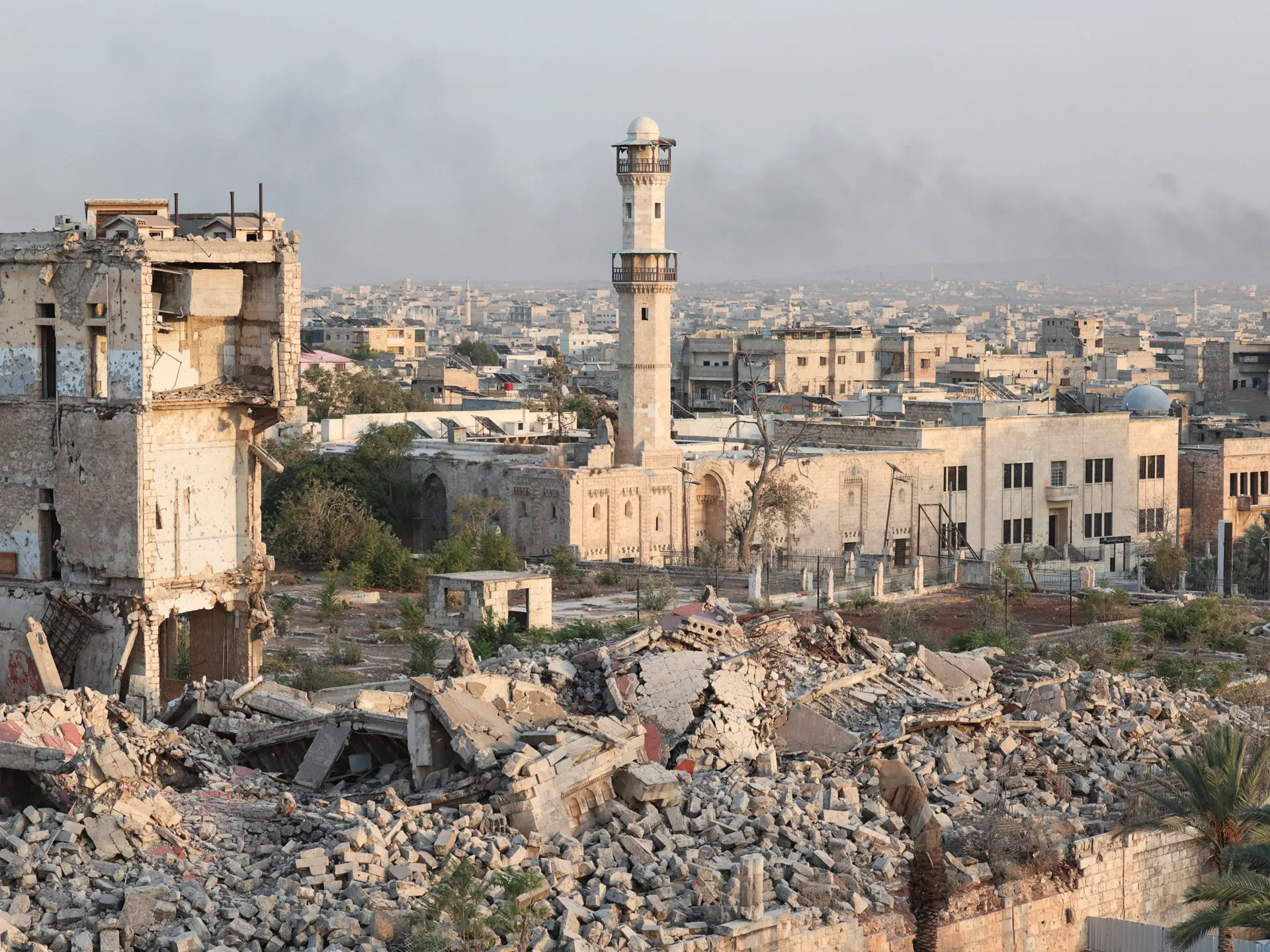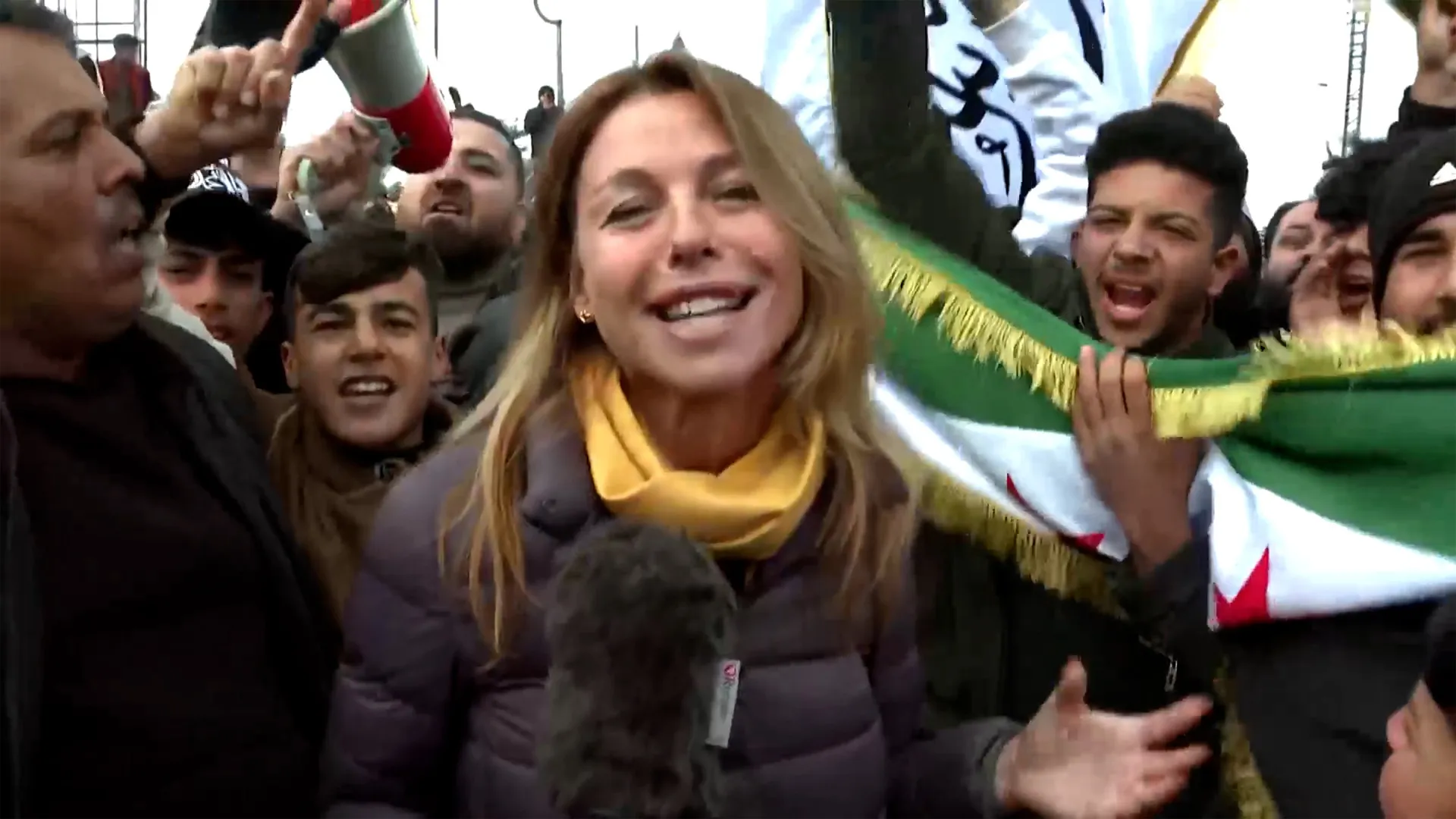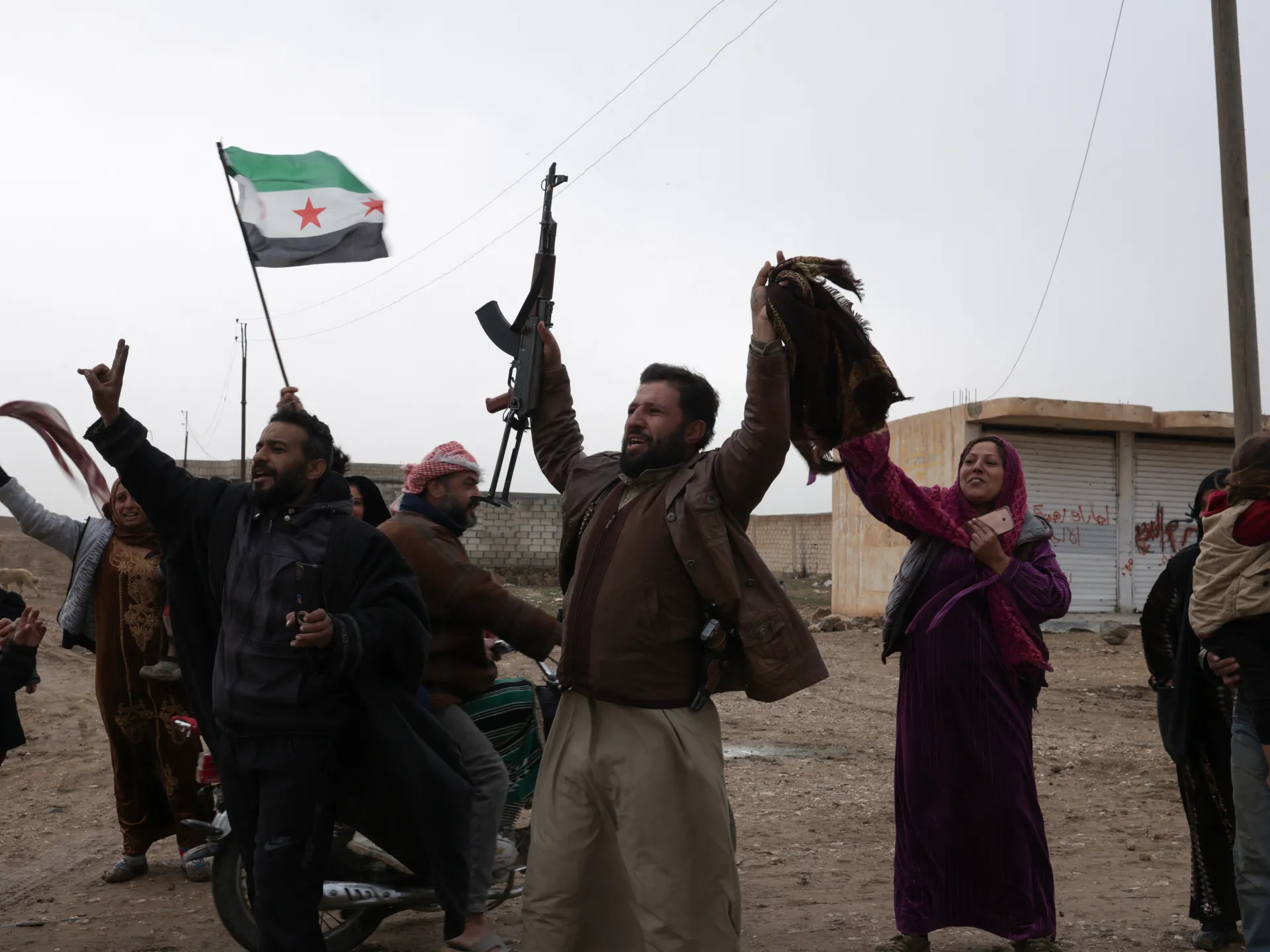What will it take for Syrians to return to Aleppo after years of war? | Syria’s War
On a recent trip from Germany, where he lives, to his hometown of Aleppo, Alhakam Shaar made a decision. He would not stay at a hotel or with friends. Instead, he would stay at what used to be his father’s office in Aleppo’s Old City.
There was only one problem.
Recommended Stories
list of 3 itemsend of list
“Not a single room had a closable window or door,” Shaar, who had been away from the city for a decade, told Al Jazeera. Aleppo’s winters are brutally cold, with temperatures reaching well below zero degrees Celsius.
Still, he bought a sleeping bag that had been advertised as capable of withstanding extreme weather.
“That didn’t turn out to be true, and I still woke up with cold toes many nights,” he said. But despite the cold, he did not regret the decision.
Although his trip to Syria was short – about two weeks, in part due to flight cancellations after armed clashes in Aleppo – Shaar started renovating his old family home, also in the Old City, that had been looted and damaged during the war.
The roof was collapsing, and the door to the street had been removed. Two weeks did not seem to be enough time to make a dent in the extensive renovation work required.
But he got the job done, and placed a metal door on the house to signal that it was no longer an abandoned property.
“I was happy. I was truly, truly happy to be in Aleppo, not as a guest or as a tourist, but as an Aleppan,” he said. “As someone who is home. And I felt at home.”
Thousands of Syrians are returning to Aleppo, a great city damaged by years of neglect and war. Much of it, however, is plagued by infrastructure damage, requiring significant reconstruction efforts.
The new Syrian government – in power since December 2024 – has already started some of the work to rebuild Aleppo. But residents wonder if this will be enough to bring the city back to its past glory.
Years of damage
Aleppo was Syria’s most populous city until the war heavily reduced its population.
Its geographical position made it an important stop on the Silk Road trade route, as well as for travellers who passed through Anatolia – a large peninsula in Turkiye – eastwards into Iraq or further south towards Damascus.
While the emergence of Egypt’s Suez Canal in international shipping diminished Aleppo’s regional role, it still maintained an importance in Syria for being the country’s capital of industry.
Its prominence lasted throughout the rule of President Hafez al-Assad, who took control of Syria in 1970. The Assad regime’s massacre in the town of Hama in the early 1980s also spread to Aleppo, where thousands of opponents were killed. Still, the city held on.
However, by the time the 2011 Syrian uprising came around, Aleppo had already faced a lack of state investment and neglect.
The city deteriorated further as Bashar al-Assad, who took over the presidency when Hafez, his father, died in 2000, violently cracked down, and Syria deteriorated into war. Aleppo soon became divided, with regime forces controlling the west and the opposition controlling the east.
Then, in 2016, the Assad regime, with the help of Lebanon’s Hezbollah, Iran and Russia, violently took the eastern part of the city, which had become the capital of the Syrian revolution. In the process, they destroyed vast swaths of east Aleppo, expelling thousands.
As the Assad regime fell a little more than eight years later, some of Aleppo’s children returned as its liberators. But they found that the regime had not rebuilt the city during their absence. Many of Aleppo’s suburbs, where Syrian production had flourished in the pre-war years, were now ghost towns, after the regime had cut off water and electricity services.
Aleppo is still struggling. Informal settlements and overcrowded schools are common in the city and the rest of northern Syria, where a European Union report in January said that “2.3 million people reside in camps and informal settlements, of which 80 [percent] are women and children”.
Locals say they fear Aleppo may never be the same again.
“There is nothing that will return to the same as it was,” Roger Asfar, an Aleppo-native and the Syrian country director for the Adyan Foundation, an independent organisation focused on citizenship, diversity management and community engagement, told Al Jazeera.
Asfar said that Aleppo’s needs are the same as all parts of Syria devastated by more than a decade of war. Reconstruction is among the top priorities, but it will require heavy investment, particularly if the city’s historic character is to be protected.
Reconstruction
The Syrian government has worked with organisations like the Aga Khan Trust for Culture (AKTC) to restore parts of Aleppo’s Old City, including its historic souk – a 13km-long (8 miles) covered marketplace.
The government also installed water pipes and new lighting around the city’s historic citadel, its crown jewel and a tourist attraction for both Syrians and foreigners. The municipality of Aleppo has also collaborated with the Directorate-General for Antiquities and Museums to rehabilitate parts of the citadel, as well as the Old City’s Grand Umayyad Mosque.
Still, the effort to rebuild Aleppo is Herculean and will require more investment.
Asfar said the challenge starts with governance. This requires that Damascus, instead of merely imposing its decisions on the city, consults with locals. “Aleppo doesn’t need an authority that decides on its own and ignores all other voices,” he said.
The Aleppo governorate, which includes the city and eight districts in northern Syria, is Syria’s most densely populated region, according to UNICEF. Its 4.2 million population is forced to live with the problems facing much of Syria, including infrastructural issues and long power cuts.
Shaar, the Aleppan native who recently visited his hometown, is also a founding scholar on the Aleppo Project, a Central European University project that aims to address the key issues facing the city’s eventual reconstruction.
He said he expects infrastructural issues to “improve in the coming years”, particularly as Syria’s oil and gas revenues increase. But he warns that expectations should be tempered.
Shaar is one Aleppan who holds out hope that the city may bounce back. He pointed out that a silver lining of Assad’s neglect is that the city had not become gentrified by the former government’s economic and political elites, unlike Homs or Damascus.
To return or not to return?
Aleppo has always been a city defined by its culture and diversity. Some Aleppans hope this of its character will return.
Musician Bassel Hariri is an Aleppo native, now based in London, who learned to play instruments from his father. He remembers the rich and diverse tradition of his native city, which has been passed on from one generation to the next.
“Music, art, cooking, whatever – everything is carried directly from the community,” Hariri said. “And this richness and this cultural access and the diversity of Aleppo makes it one of the most wonderful cities in Syria.”
While the city may not return to its past glory, thousands of Syrians are still coming back to their homes in Aleppo and its countryside. Others simply have nowhere else to go.
For Shaar, Aleppo is still calling. Two things are keeping him away: his wife’s full-time job as a lecturer in Germany, and the lack of a stable salary in Syria.
“Not much more than this,” he said. “It wouldn’t take much to bring me back to Aleppo, personally.”


